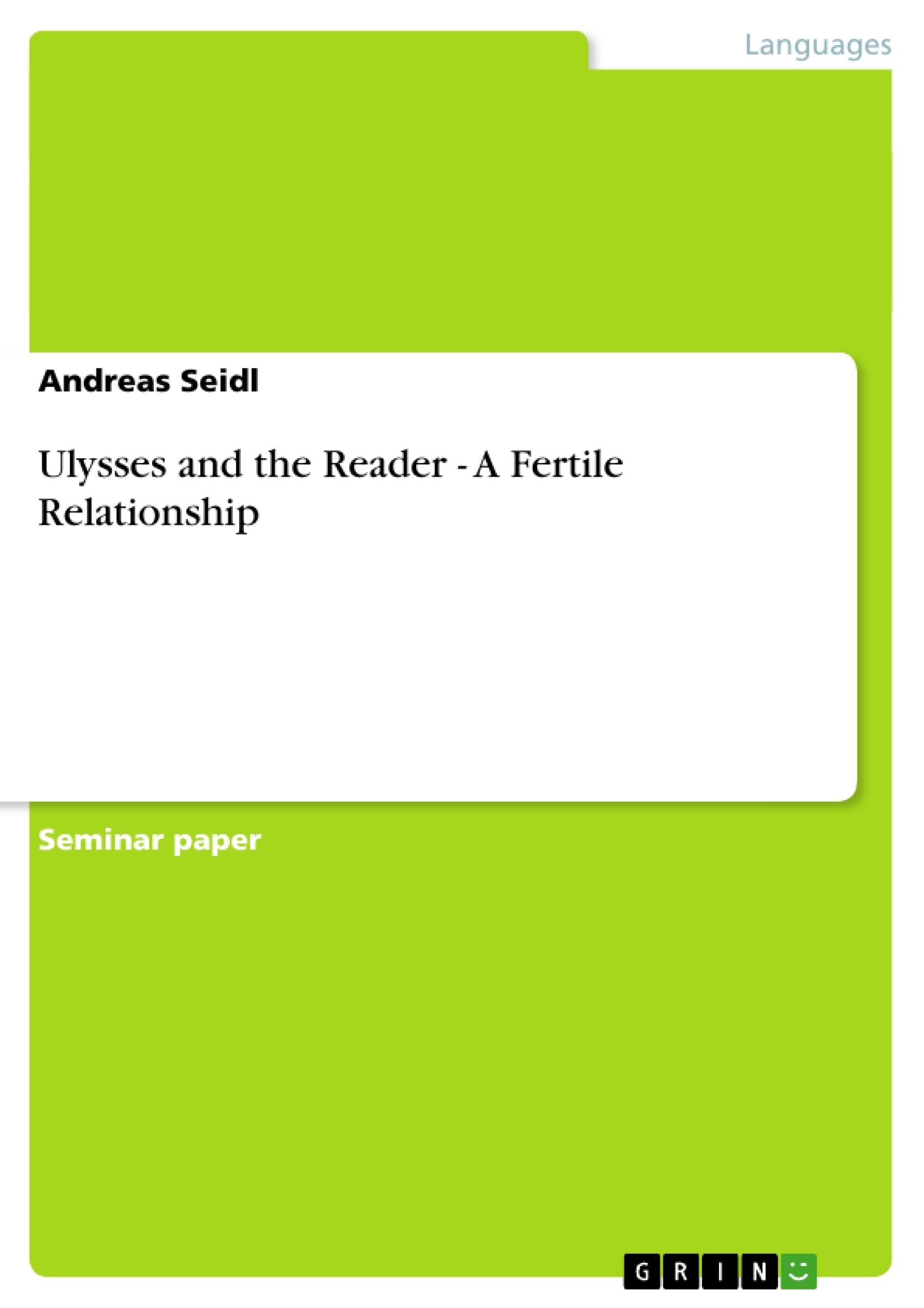There is a frequently recurring theme in mythological (and most of all in religious) narratives: the sacrifice of a god. The Aztec god Nanahuatl sacrifices himself to give rise to a new sun in the east; Christ sacrifices his body to redeem mankind from mortal sin; Odin sacrifices his physical form to gain superior knowledge. In Ulysses, the omnipotent and omnipresent god of the narrative, the author, sacrifices parts of his power to give birth to a new form of fictional universe. The creator of the artificial reality systematically deconstructs his most powerful means of structuring and ordering the imagined world: the literary device of the narrator. In Joyce’s modern mythology, it is this device which is exposed to the reader as being not reliable, for the narrator becomes subject to the relativity of his position within the discourse of the text, he changes his form, he vanishes almost totally only to come back in the guise of an actual character of the novel, and sometimes intermingles with the thoughts of characters, which renders him hard to be identified at all. This state of the narrator, in combination with Joyce’s effort “…to put in so many enigmas and puzzles that it will keep the professors busy for centuries….”, his use of different stylistic modes, his frequent allusions to other works of literature and his subversion of the conventional notion of time and space, produces an effect on the reader, which is not to be experienced in similar degree with works predating the publishing of Ulysses: the effect of incertitude. Readers see themselves confronted with a seemingly incoherent fictional world, in which the ancièn regime of authorial order has been subject to a literary coup d’ état and has been replaced by a democratic system of polyphonic quality.
To highlight some basic concepts of incertitude, refer to potential patterns of order, cast light on one possible way of handling the fictional universe, which seems to be, in words borrowed from Pope, “a mighty maze, a maze without plan”, and point to the readers role in enacting the play of the text shall be the predominant aims of this essay.
Inhaltsverzeichnis (Table of Contents)
- Introduction: After the God has fallen
- Reading Ulysses: Incertitude vs. Order
- Conclusion: Some Thoughts on the Freedom of the Reader
Zielsetzung und Themenschwerpunkte (Objectives and Key Themes)
This essay explores the concept of “incertitude” in James Joyce's Ulysses, specifically focusing on how the novel disrupts traditional notions of narrative coherence and authorial control. It examines the reader's role in constructing meaning within a text that challenges conventional expectations of order and clarity.
- The disruption of narrative order and authorial control in Ulysses
- The reader's role in constructing meaning in an uncertain text
- The concept of “incertitude” as a central theme in Ulysses
- The interplay between subjective perception and objective reality
- The influence of historical and philosophical ideas on the narrative
Zusammenfassung der Kapitel (Chapter Summaries)
The introduction examines the theme of the author's sacrifice in Ulysses, where Joyce relinquishes traditional authorial power, creating a fragmented and polyphonic narrative. It introduces the concept of “incertitude” as a key feature of the text, highlighting the reader's role in navigating the text's ambiguities.
The second chapter delves deeper into the reader's experience with Ulysses, exploring the tension between the desire for order and the text's inherent disarray. It analyzes Stephen's interior monologues and his questioning of historical narratives, suggesting that the reader encounters multiple possibilities rather than a single, inevitable reality. The chapter also examines the subjective nature of perception and how it challenges the possibility of an objective coherence within the fictional universe.
Schlüsselwörter (Keywords)
The core keywords and focus topics of this essay are: James Joyce, Ulysses, narrative coherence, authorial control, incertitude, reader response, subjective perception, objective reality, fragmentation, polyphony, historical narratives, literary criticism, modernism.
Frequently Asked Questions
What is the concept of 'incertitude' in Joyce's Ulysses?
Incertitude describes the effect of uncertainty and incoherence experienced by the reader due to the lack of a reliable narrator and traditional authorial order.
How does James Joyce challenge traditional narrative structures?
Joyce systematically deconstructs the role of the narrator, uses multiple stylistic modes, and subverts conventional notions of time and space to create a 'polyphonic' universe.
What is the 'sacrifice of the author' in Ulysses?
The essay argues that Joyce, as the 'god' of the narrative, sacrifices his omnipotence to allow the reader more freedom in interpreting the fragmented fictional reality.
Why is the narrator in Ulysses considered unreliable?
The narrator changes form, vanishes, or mingles with the characters' thoughts, making it difficult for the reader to identify a single, stable source of truth.
What is the reader's role according to this essay?
The reader is not a passive consumer but an active participant who must navigate the 'maze' of the text and construct order from seemingly incoherent patterns.
- Citation du texte
- Andreas Seidl (Auteur), 2003, Ulysses and the Reader - A Fertile Relationship, Munich, GRIN Verlag, https://www.grin.com/document/14230



